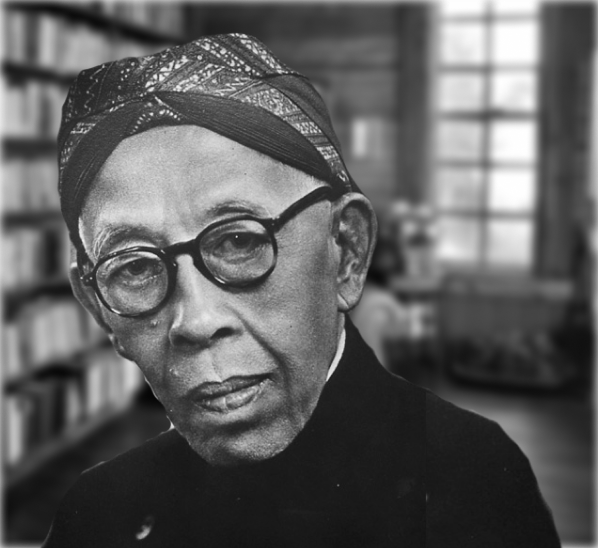- A member of the Public Health Service since 1914, Dr. KODIJAT had long fought this highly contagious scourge of the rural areas in the moist tropics that corrodes the flesh and finally attacks the bones of its victims.
- He had conducted at Kediri, in 1934, the first experiment in treating an entire population group until all symptoms of infection had disappeared.
- Today at the halfway mark, some 55 million Indonesians, or nearly two out of every three residents of the 3,000 islands in the archipelago, have been examined and more than half of the estimated 12 million cases of yaws have been cured.
- The RMAF Board of Trustees recognizes his dedicated and skillful direction of the massive yaws eradication effort that is freeing his countrymen from a disfiguring and crippling disease.
Dr. RADEN KODIJAT had reached a normal retirement age when he was asked, in 1950, to organize and direct a national yaws control program that is today larger than the total of all other such efforts in the world. Knowing the enormity of the task ahead, he accepted without hesitation this call to the service of his Government and people.
A member of the Public Health Service since 1914, Dr. KODIJAT had long fought this highly contagious scourge of the rural areas in the moist tropics that corrodes the flesh and finally attacks the bones of its victims. Seeing that clinics filled with patients taking the tedious arsenical cure were reaching only a fraction of those with yaws, he had conducted at Kediri, in 1934, the first experiment in treating an entire population group until all symptoms of infection had disappeared. Discovery of the penicillin treatment made broad extension of his approach practical. It became possible when the new Republic’s request for assistance in a countrywide attack was met by the United Nations Children’s Fund and the World Health Organization which have provided penicillin, vehicles, medical supplies and technical assistance.
Carefully investigating every aspect of the problem in order to utilize most efficiently the staff and equipment available, he evolved a program that could function effectively despite the difficulties facing his newly independent nation. Integrated with regular health services, it was in harmony with local needs and overcame the acute shortage of trained doctors by using male nurses and assistants for mass examination and treatment.
Today at the halfway mark, some 55 million Indonesians, or nearly two out of every three residents of the 3,000 islands in the archipelago, have been examined and more than half of the estimated 12 million cases of yaws have been cured. Now 71 years old, this devoted doctor continues to hold concern for the health of his people above his own and quietly but firmly to manage an endeavor of far-reaching humanitarian and economic consequences through its crucial years.
In electing RADEN KODIJAT to receive the 1961 Ramon Magsaysay Award for Government Service, the Board of Trustees recognizes his dedicated and skillful direction of the massive yaws eradication effort that is freeing his countrymen from a disfiguring and crippling disease.
My election as 1961 Ramon Magsaysay Awardee for Government Service is a great honor to me. I am glad that I am able to attend these ceremonies so that I can express my thanks personally.
In the first place, I thank the Board of Trustees for their decision to elect me as 1961 Ramon Magsaysay Awardee and for the Award the Foundation gives me.
The Board of Trustees based their decision on reports, articles and interviews. I express my thanks to those who wrote the reports and the articles, and those who gave the interviews, because their reports, their articles and their information provided background materials which by the Board of Trustees were considered as being sufficient to be used as a basis for their decision.
Furthermore, I wish to express my gratitude to all those who from the beginning of my career as a government official until now have successively worked in cooperation with me. In particular, in connection with the yaws campaign, I wish to thank all officials in the Department of Health and the Provincial and Regency Health Services, in UNICEF and WHO, in the Civil and the Village Administration, the school teachers and all others who took an interest in our work.
I thank them the last, but my gratitude to them is no less. And I do not mention names because there are too many of those whom I should like to mention. Ladies and Gentlemen, I thank you.

